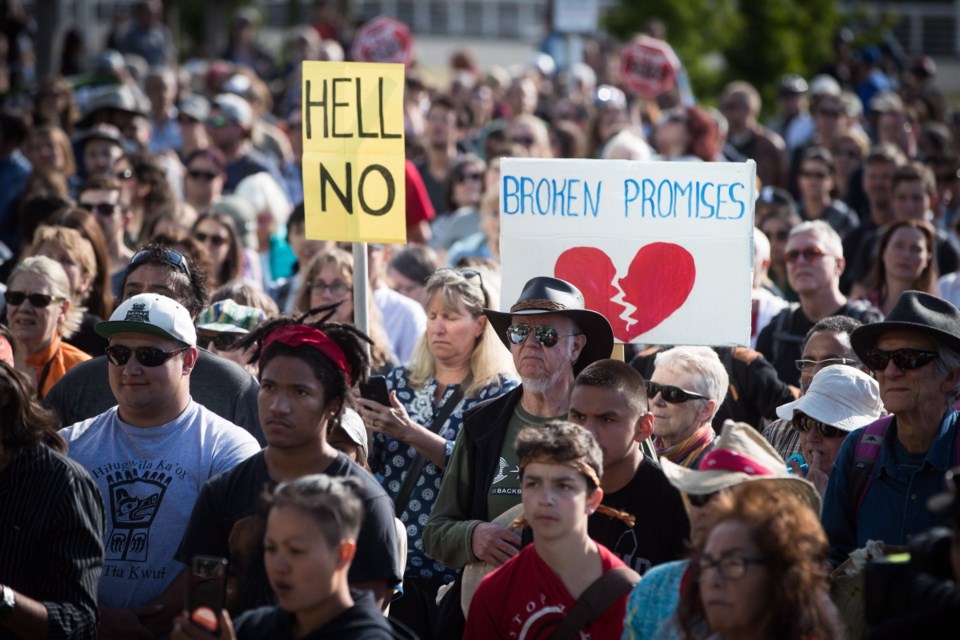When a major event occurs, it is often said that “this changes everything.” In the case of the Canadian government’s decision to purchase Kinder Morgan’s Trans Mountain pipeline, this doesn’t change much, at least not for B.C.
Frustrated with opposition to the twinning of the pipeline from Alberta to the coast, and nervous about Kinder Morgan withdrawing from the project, Prime Minister Justin Trudeau’s government has agreed to buy the pipeline and other assets from the Texas-based company for $4.5 billion.
The deal calls for for Kinder Morgan to proceed with its original plan to begin twinning the pipeline this summer while the sale is finalized, which likely won’t happen until August, federal Finance Minister Bill Morneau said Tuesday in Ottawa. When the sale is complete, he said, Canada will continue construction on its own, with the aim of eventually selling the project when market conditions would allow the government to get the best price.
The cost to Canadians could go higher — Ottawa will provide loan guarantees for any money Kinder Morgan spends on the endeavour between now and when the pipeline is sold.
Pipeline proponents are jubilant, among them Alberta Premier Rachel Notley, who said in Edmonton there is now more certainty around the project than ever before.
“We said we should get the pipeline built and we are getting it built. We will not stop until the job is done,” Notley said Tuesday. “Pick up those tools, folks. We have a pipeline to build.”
Well, not so fast. The feds haven’t solved all the problems, they’ve just assumed ownership of them, including the risks to B.C.’s coast from increased oil-tanker traffic.
The lawsuits seeking to block the project and seeking clarification of jurisdiction are still before the courts.
Finance Minister Bill Morneau believes Canada’s authority to build the pipeline will be able to overcome any resistance, be it from protesters or the B.C. government, but protesters and their banners are not going to magically disappear. Some First Nations are not suddenly going to change their views on what they see as violations of their traditional territories and rights. Those opposed to the pipeline expansion will not suddenly feel better about it just because Ottawa is in charge, especially when they consider their tax dollars will now be paying for the project they oppose.
Notley, whose government had passed legislation that would allow Alberta to turn off the oil taps as punishment for the intransigent British Columbians, now says she doesn’t think that will be necessary. But again, little has changed — her hand still hovers over the faucet, just in case B.C. doesn’t wake up and see the light: “It remains something that we would consider using should it become something that’s necessary for us to maximize our resources.”
The deal has done nothing to change the B.C. premier’s mind. John Horgan says the issue was never about who owns the pipeline, but whether B.C. has the right to protect its environment from the impact of a bitumen spill. And Ottawa’s decision to buy the pipeline does not reduce the risk of a spill, he says. B.C. is asking the Appeal Court whether it has the right to regulate the transportation of hazardous substances inside its borders.
Trans Mountain has been a headache for Trudeau, who has backed the pipeline expansion as a project vital to the national economy. But the purchase doesn’t solve any problems or soften any of the harsh realities of shipping crude oil from our coasts.
A new conductor has stepped up to the podium, but the orchestra is still playing the same tune.



